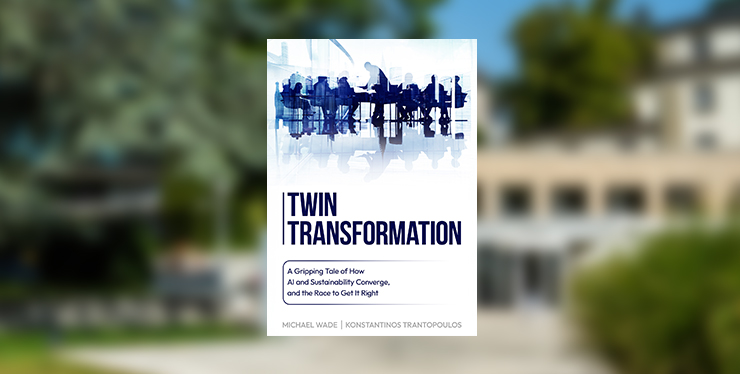PMI’s vision of a smoke-free future: Can a tobacco company be sustainable?
Philip Morris International (PMI) CEO André Calantzopoulos announced in 2016 a radical pivot in the Marlboro cigarette manufacturer’s strategy: the company would shift to “smoke-free” products in more than 180 countries around the world. One of these products was IQOS, a new “heat-not-burn” (HNB) device aimed at providing the world’s over 1 billion “adult smokers with better options.” The innovation of the products which, PMI claimed, were less harmful than cigarettes was welcomed by many investors and PMI. Calantzopoulos and PMI’s Board of Directors believed that its sustainability strategy was critical to the company’s long-term success. Nevertheless, convincing important stakeholders that a tobacco company could be part of the solution to rid the world of cigarettes by offering better alternatives was a different matter. The United Nations, World Health Organization (WHO), regulators, public health advocates, and some sustainable investors said that there was no safe level of use and no opportunity for effective engagement with tobacco companies. After a two-year wait, the US FDA issued an order authorizing the sale of IQOS in the US market of 40 million smokers. The FDA found that IQOS was “appropriate for the protection of health.” PMI organized the 2020 Stakeholder Engagement Meeting in Lausanne, Switzerland to convene key stakeholders to engage with PMI’s smoke-free business transformation.
- Recognize the role of sustainability in mitigating negative impact and the potential of positive impact.
- Identify the implications of exclusion and engagement for sustainable investors.
- Identify stakeholders and recognize which enable a sustainability strategy.
- Analyze a company that must address negative health impacts of its own business.
- Examine the strategy of sustainable investors trying to achieve short-term financial success and implement a long-term sustainability vision.
Philip Morris International, Consumer Goods, Tobacco
Cranfield University
Wharley End Beds MK43 0JR, UK
Tel +44 (0)1234 750903
Email [email protected]
Harvard Business School Publishing
60 Harvard Way, Boston MA 02163, USA
Tel (800) 545-7685 Tel (617)-783-7600
Fax (617) 783-7666
Email [email protected]
NUCB Business School
1-3-1 Nishiki Naka
Nagoya Aichi, Japan 460-0003
Tel +81 52 20 38 111
Email [email protected]
IMD retains all proprietary interests in its case studies and notes. Without prior written permission, IMD cases and notes may not be reproduced, used, translated, included in books or other publications, distributed in any form or by any means, stored in a database or in other retrieval systems. For additional copyright information related to case studies, please contact Case Services.
Research Information & Knowledge Hub for additional information on IMD publications
The B case outlines how, by early 2025, Isabella Phoenix's initial vision for HP's Amplify Impact sustainability program had grown into a global initiative involving 4,800 partners in 48 countries. The program surpassed its goals, enrolling 59 of ...
The A case in this two-part series outlines the challenges Isabella Phoenix faced in designing a global sustainability program for HP's vast network of channel partners in just 12 weeks with only one team member and limited resources. The initiati...
In today’s boardrooms, two themes dominate: rapid technological advancement and the growing urgency of environmental accountability. But a new source of competitive advantage is emerging, not from A.I. or sustainability alone, but from the deliber...

In President Trump’s second term, a variety of executive actions have reversed social progress. Withdrawing from the Paris Climate Agreement presents a significant challenge to bending the global emissions curve since it is one of the world’s larg...
in I by IMD
Research Information & Knowledge Hub for additional information on IMD publications
Research Information & Knowledge Hub for additional information on IMD publications
Case reference: IMD-2681 ©2025
Research Information & Knowledge Hub for additional information on IMD publications
in I by IMD
Research Information & Knowledge Hub for additional information on IMD publications
Research Information & Knowledge Hub for additional information on IMD publications
in I by IMD
Research Information & Knowledge Hub for additional information on IMD publications
in I by IMD
Research Information & Knowledge Hub for additional information on IMD publications
Research Information & Knowledge Hub for additional information on IMD publications
Research Information & Knowledge Hub for additional information on IMD publications
in Stanford Social Innovation Review Online 2 June 2025
Research Information & Knowledge Hub for additional information on IMD publications







